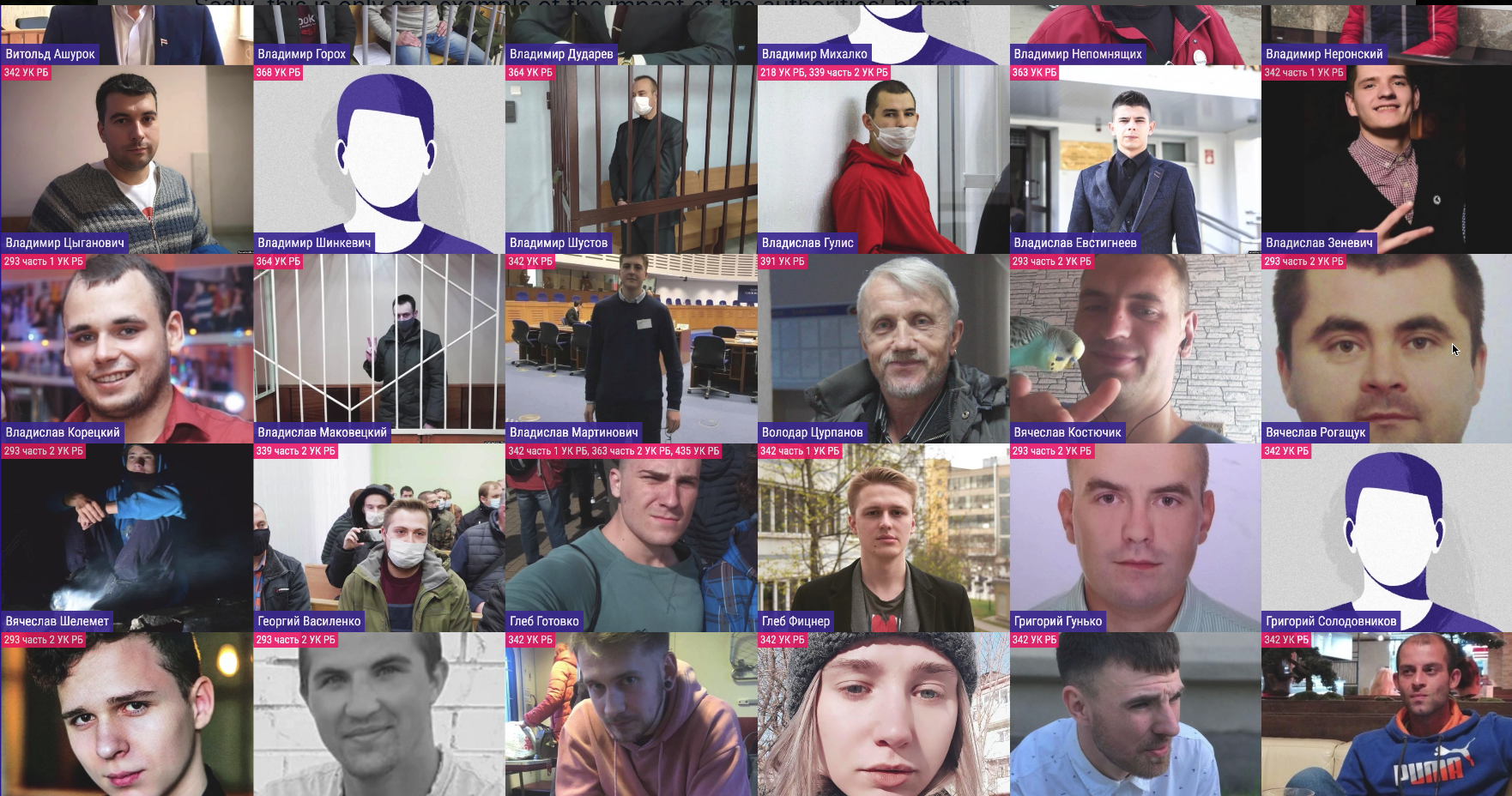Repression in Belarus: A special report from USAGM network

(Current Time)
More than 200 people have been named as political prisoners in Belarus since the presidential elections held last August and Russian-speaking audiences are learning about each one in a special report from USAGM’s Current Time.
The political prisoners include bloggers, businesspeople, and activists, according to the human rights center Viasna, based in Minsk, Belarus, and each has a story that Current Time describes in an interactive report.
Current Time, a 24/7 TV and digital network for Russian-speakers around the world, is produced by Radio Free Europe/Radio Liberty (RFE/RL) in collaboration with Voice of America.
Belarus has seen ongoing mass protests since the country’s August 9, 2020, election, which protesters say was rigged to hand Belarus President Alyaksandr Lukashenka a sixth term.
Belarusian authorities also are currently holding at least 10 journalists, including RFE/RL contributor Ihar Losik, on charges that are widely seen as politically motivated. Losik just ended a nearly six-week hunger strike on January 25.
In a statement released on February 5, the Media Freedom Coalition expressed “deep concern about continued attacks on media freedom and the targeting of independent journalists in Belarus.”
The coalition, which consists of 43 countries working together to advocate for media freedom, also noted: “It is deeply troubling that RFE/RL journalist Ihar Losik felt the need to go on hunger strike in order to bring attention to his unjust imprisonment. We are relieved Mr. Losik has halted his hunger strike but remain concerned about his ongoing detention. Sadly, this is only one example of the impact of the authorities’ blatant contempt for media freedom.”
Numerous Belarus Service journalists have been arrested, beaten, and jailed throughout the election season, including RFE/RL’s Anton Trafimovich, who suffered a broken nose after being seized by riot police.
“In the 30 years that we have been reporting from Belarus, we have never seen this amount of pressure on our people. This is a coordinated attack on press freedom and a further attempt to keep us from reporting on the current reality in Belarus,” RFE/RL Belarus Service Director Alexander Lukashuk said in late 2020.
For English-speaking audiences, RFE/RL has created a special section on its website devoted to the crisis in Belarus, as Belarusians continue to take to the streets to demand the resignation of President Lukashenka and call for new elections.
